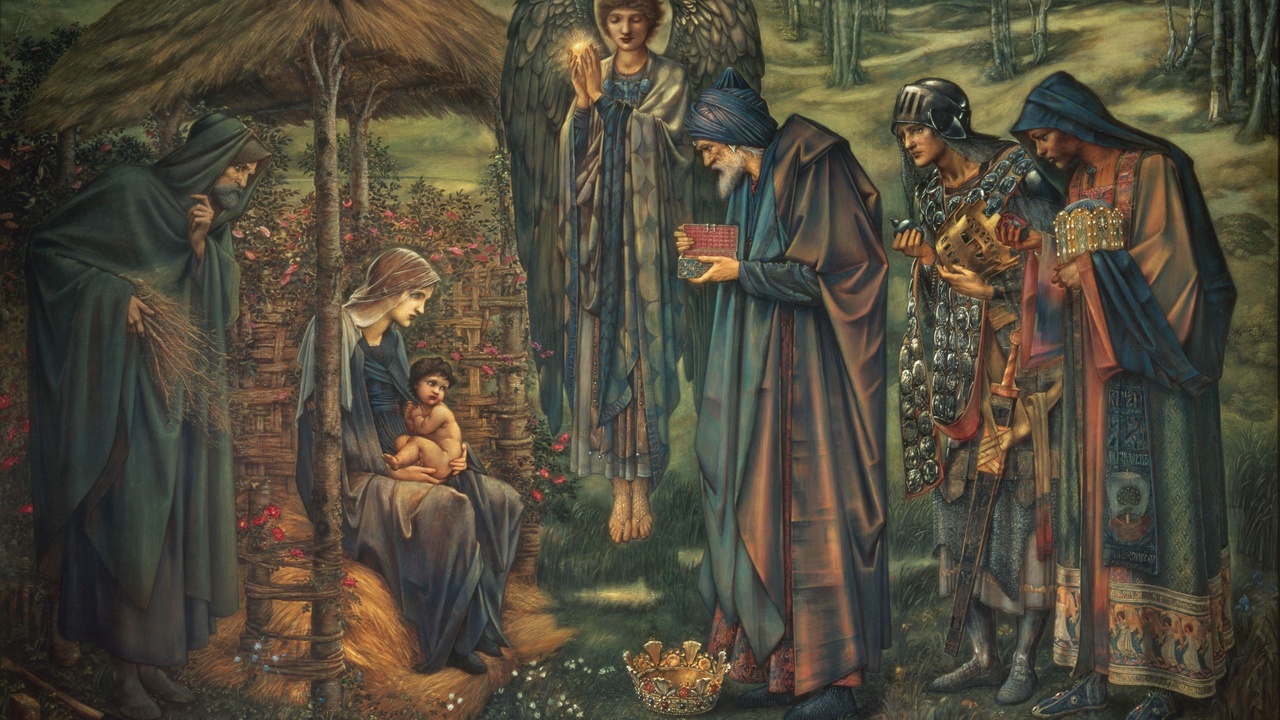The Life He Gives Us

We stand on the edge of the end of Christmastide, with Epiphany coming in a couple of days (January 6). Once more, before this season ends, let us think about the meaning of Christmas. It commemorates the Incarnation of the Word of God. God the Son takes on human nature to save us.
Just how does he save us? And what does "save" mean? The answer to the first question is often lodged in Jesus' death, as well it should be. He saves us by dying for our sins. Yes and amen. But there is oh so much more to the salvation story than the cross, as central and life-altering as it is. Talk of Jesus' saving death (to move to our second question) relates very strongly to forgiveness and restoration to relationship with the Father, or a change in status. This mighty act of divine mercy in Christ is of central importance. It is essential to understanding what becoming a Christian involves.
But again, there is more. And it is that "more" that I want us to ponder. We'll do so by way of connecting some scripture verses that reveal a beautiful mystery. First, in John 6:51, Jesus says to those listening to him, "The bread that I will give for the life of the world is my flesh." Now, "flesh" is a richly suggestive word. The Apostle Paul uses it often to refer to sinful human nature, "nature" as in not the way God created us, but the way we have become in the Fall. We who teach often take pains to help people understand that "flesh" in this sense does not mean our physical bodies or natures, but something that infects and perverts our natures.
When Jesus says that the life that he will give for the world is his flesh, he is saying more than that he is giving his body. His body as a human body is vulnerable to the same weaknesses and temptations as are ours. The marvel of the Incarnation is that the eternal Son of God assumed our fallen nature to heal and renew it. "Flesh," then, is just the right word for Jesus to use. He participates in the very nature that we have, yet without lapsing into that sin that has corrupted our natures. Hebrews 4:15 reminds us that Jesus, our great and sympathetic high priest, was tempted in every way, as we are, yet without sin. That is because he took up into his nature our flesh.
If I could put the question in crude terms, how did Jesus manage this being tempted or tested as we are, yet without sin? How did he do it? Let me postpone an answer and bring in another scripture verse. In John 17:19, in the prayer known as Jesus' high priestly prayer, as he intercedes for his disciples (which includes us), he tells the Father, "And for their sakes I sanctify myself, so that they also may be sanctified in truth." Just how does Jesus sanctify himself in this moment? New Testament scholars have long been aware of the suggestive possibilities of the word "sanctify" in this context. It mirrors language in Jewish tradition of preparing the sacrificial offering. The priest sanctifies the offering before the animal is offered. And we get the hint here in John 17 that Jesus is purposefully echoing that language. Jesus is preparing to offer himself as the final act of the great act of salvation. But, in truth - and this is a key point - Jesus prepared himself for this moment throughout his entire earthly life. He sanctified himself from the beginning.
Now to the question, how? How did Jesus manage and maintain such a life? Here we get drawn into the beautiful mystery of the God-Man. As God, he brings all divine power to the work of salvation. As human, he walks in perfect, trusting obedience to the Father. That's how he did it. Daily trust. Daily commitment. Daily, just as he instructs (and empowers) us to do. In this way he shows himself to be the Last Adam, the perfect Image of God. We know true human nature by looking at him.
This is why Paul exhorts us in Romans 12:1 to present ourselves as living sacrifices. Paul of Jewish tradition draws on the very same sacrificial imagery. It is why the author of Hebrews tells us to look to Jesus, the author and finisher (or pioneer and perfecter) of our faith. Daily, we give ourselves in trusting obedience to the Father.
We can only do this because of Christ. Because the life that he gives us is his flesh. He offers himself to us, from Incarnation to crucifixion and resurrection.
One more time, Merry Christmas, friends.

